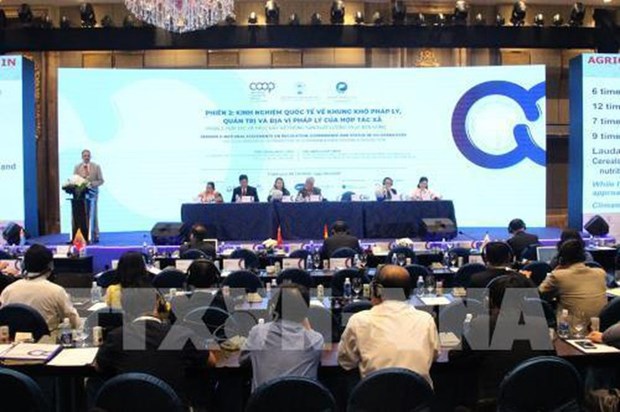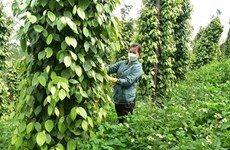Enabling legal framework for cooperatives’ development needed
Domestic and foreign delegates to the second Asia-Pacific Cooperative Registrars’ Forum in Ho Chi Minh City on April 18 emphasised the need to complete a legal framework to facilitate the development and effective operations of cooperatives.
 Second Asia-Pacific Cooperative Registrars’ Forum (Source: VNA)
Second Asia-Pacific Cooperative Registrars’ Forum (Source: VNA)HCM City (VNA) – Domestic and foreign delegates to the second Asia-Pacific Cooperative Registrars’ Forum in Ho Chi Minh City on April 18 emphasised the need to complete a legal framework to facilitate the development and effective operations of cooperatives.
Sharing Vietnam’s cooperative development situation, Director of the Vietnam Institute of Organic Agriculture Economics Le Thanh said that Vietnam now has 22,456 cooperatives, a half of which are operating effectively.
In the past three years, 2,000-2,500 new cooperatives were established each year. It is expected that Vietnam will have around 60,000 cooperatives with 20 million members by 2030, Thanh stated.
However, cooperatives are facing difficulties in gaining access to bank loans to serve agricultural restructuring, he stressed, adding that the lack of capital is also hampering cooperatives’ logistics activities.
Nguyen Manh Cuong, Vice President of the Vietnam Cooperative Alliance, underlined that an enabling legal framework would better connect domestic and foreign cooperatives, especially in hi-tech agriculture, thus helping cooperatives expand their export markets.
Ann Apps from Newcastle University of Australia and Lebbe Naseer and Commissioner of Cooperative Development & Registrar of Sri Lanka Suleiman Lebbe Naseer shared that both Australia and Sri Lanka have their own Law on Cooperatives to support the inclusive role of cooperatives in socio-economic development.
Most participants agreed that more measures should be taken to promote sustainable food production, create more jobs, and develop business in the cooperative model.
The second Asia-Pacific Cooperative Registrars’ Forum was held from April 16-19 under the theme “Creating Enabling Legal Framework and Policies to Promote Sustainable Development of Co-operatives in the 21st Century”, by the Vietnam Co-operative Alliance, the International Co-operative Alliance Asia-Pacific (ICA-AP) and the Vietnam Institute of Organic Agricultural Economics. -VNA













